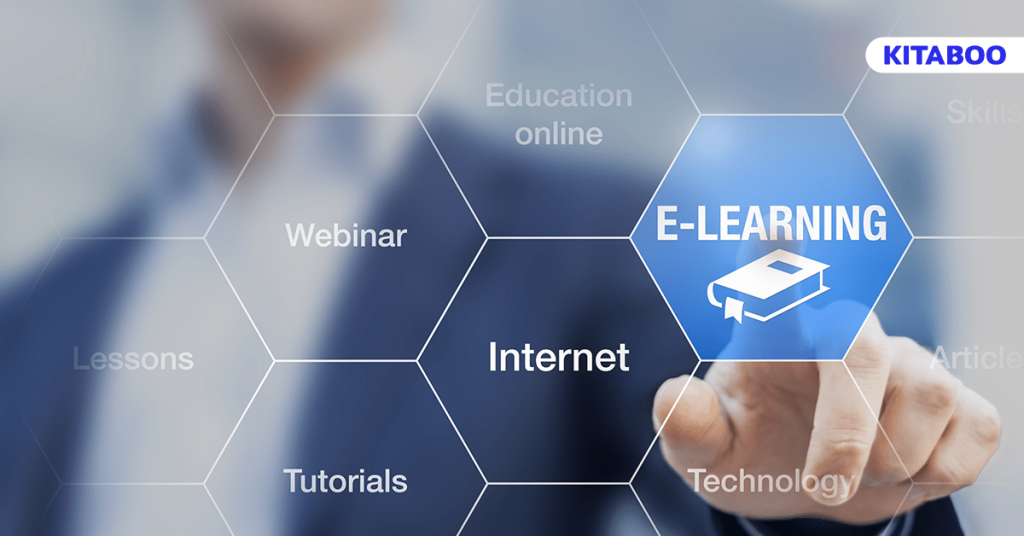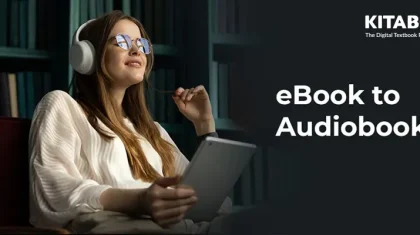
How the Dawn of Online Learning Platforms is Revolutionizing K12 Education
The popularity of online learning programs has skyrocketed over the past few years, with virtual platforms gaining ground after the pandemic, transforming us into a globally connected society that learns, functions, and progresses in an almost entirely online space.
With more educators and students acknowledging its impact on the education sphere, online learning is modifying the educational experience of an enormous student body, overcoming demographic restrictions by extending opportunities for personalized learning and development.
Access to online learning resources has triggered a revolution in classroom setups from K12 to higher education, with virtual learning rising to the forefront in most educational institutions.
This student-centered approach leverages digital portals and technology (such as a K12 LMS) to deliver personalized learning solutions while maximizing productivity, and instructional resources.
With the incorporation of technology in the classroom, the eLearning revolution is already underway in K12 education, assisting students in achieving optimal education and learning outcomes that align with their academic goals and future aspirations.
Let us delve into how online learning platforms for schools and eLearning development platforms such as KITABOO are transforming the educational landscape of K12 education. Here’s what we’ll cover.
Table of Contents
- 6 Ways Online Learning Is Transforming Education
6 Ways Online Learning Is Transforming Education
1. Self-Paced Learning
Online learning platforms for schools and hybrid learning programs allow for massive customization, enabling K12 students to advance at their own pace while catering to their learning styles and interests.
It is often expected of pupils in traditional classrooms to complete their coursework at the same rate as their peers, regardless of whether they are clear on the concepts or understand them well-enough to go through the subject faster.
Online learning effectively combines self-paced activities with scheduled lessons, allowing one to reap the benefits of individualized learning while adhering to the institution’s requirements.
eLearning facilitates lesson plans to be tailored easily to individual needs, optimizes learning abilities and supports every individual’s potential learning curve within a classroom.
2. Equal Opportunities for All
Where learning opportunities have been shaped and restricted by geographical and other factors, the proliferation and emergence of online learning platforms for schools is beginning to break down those barriers by allowing access to quality education and collaboration with some of the best teaching professionals.
Unequal access to quality education and instructors owing to socioeconomic, financial, and regional elements is one of the primary discrepancies in the traditional education system.
K12 institutions can expand their reach and offer quality education to an enormous student group by harnessing the expertise of skilled instructors through digital channels.
With the opportunity to learn in a non-classroom environment, students may access quality learning resources through digital devices, regardless of time and location.
While some eLearning formats allow students to study solely from home others are based in a physical classroom setting. Educational institutions have the option of providing blended learning initiatives, which effectively combine virtual and in-person instruction.
3. Flexible Scheduling for Maximum Productivity
eLearning is a popular choice in K12 education owing to the scheduling flexibility it offers students. This allows them to effectively organize their time and optimize productivity throughout the day.
The versatility of online learning platforms for schools is especially favorable for student-athletes or performers with demanding schedules for whom balancing their education and with extracurricular activities could be challenging.
Consuming and assimilating information becomes a convenient and efficient process with 24/7 access to virtual learning formats that allows for lectures to be recorded and archived for reference purposes.
Eliminating scheduling conflicts enables students to acquire more control over their academic experience by tailoring their lesson plans to meet their preferred learning styles and educational objectives.
Online learning platforms reinforce flexibility which contributes considerably towards ensuring that students acquire deeper insights and master a concept before advancing to the subsequent topics, allowing them to develop the necessary skills to transition to the next phase of their lives.
4. Personalized and Independent Learning
Online learning platforms for schools present robust online curriculums in an immersive environment with personalized learning at its very essence.
Pupils may exercise their discretion to choose from an assortment of intuitive tools and features that complement their learning styles and cater to their academic strengths.
eLearning courses executed well typically yield higher rates of student satisfaction and knowledge retention. Online learning platforms employ a unique student-oriented instructional approach that fosters individual academic progress through a self-directed learning path.
Further, an eLearning environment urges students to seek answers, exercise their imaginations, and take pride in their accomplishments, gradually opening multiple doors of affluent opportunities and assisting them in developing into independent, self-directed individuals with lifelong abilities.
5. Innovations in Instruction
Virtual learning platforms for schools bring forth learning solutions with an array of interactive tools and multimedia elements. Educators can now rethink and modernize their teaching methodologies. eBooks can be made more interactive than ever before, completely changing the way education is approached to begin with. They entail the creation of presentations, animations, videos, and other multimedia tools, which support innovations in the delivery of instructions.
In turn, students hone their technical abilities and creative skills as they navigate numerous interactive elements.
6. Quality Interaction Between Teachers and Students
The integration of discussion boards on virtual learning platforms makes up for the lack of social interaction that online learning tends to create. Some digital publishing platforms also allow for interactions through notes and comments, which can be added within the subject-matter itself.
The implementation of such a social environment creates positive teacher-student interactions that are conducive to enhanced learning outcomes.
These effective multi-directional teacher-student interactions are a requisite for value establishment, ability training, knowledge acquisition, and achieving insightful learning experiences in the classroom.
The Bottom Line
Adaptive learning technology in K12 education gives students access to top-notch educational resources and instructors, while allowing them to undertake their academic journey in a personalized environment at a self-defined pace. Furthermore, these emerging technologies facilitate active collaboration within a guided learning atmosphere, translating into better academic outcomes.
It is clear that online learning has revolutionized K12 education and is here to stay. The question that then arises is how can K12 publishers and educators cater to the ever-evolving needs of their students?
A cloud-based digital publishing platform such as KITABOO, might just be what you need. KITABOO facilitates the creation, publishing and distribution of interactive eBooks that could make a world of difference to the subject-matter you provide.
To know more, write to us at contact@kitaboo.com.
Discover how a mobile-first training platform can help your organization.
KITABOO is a cloud-based platform to create, deliver & track mobile-first interactive training content.


